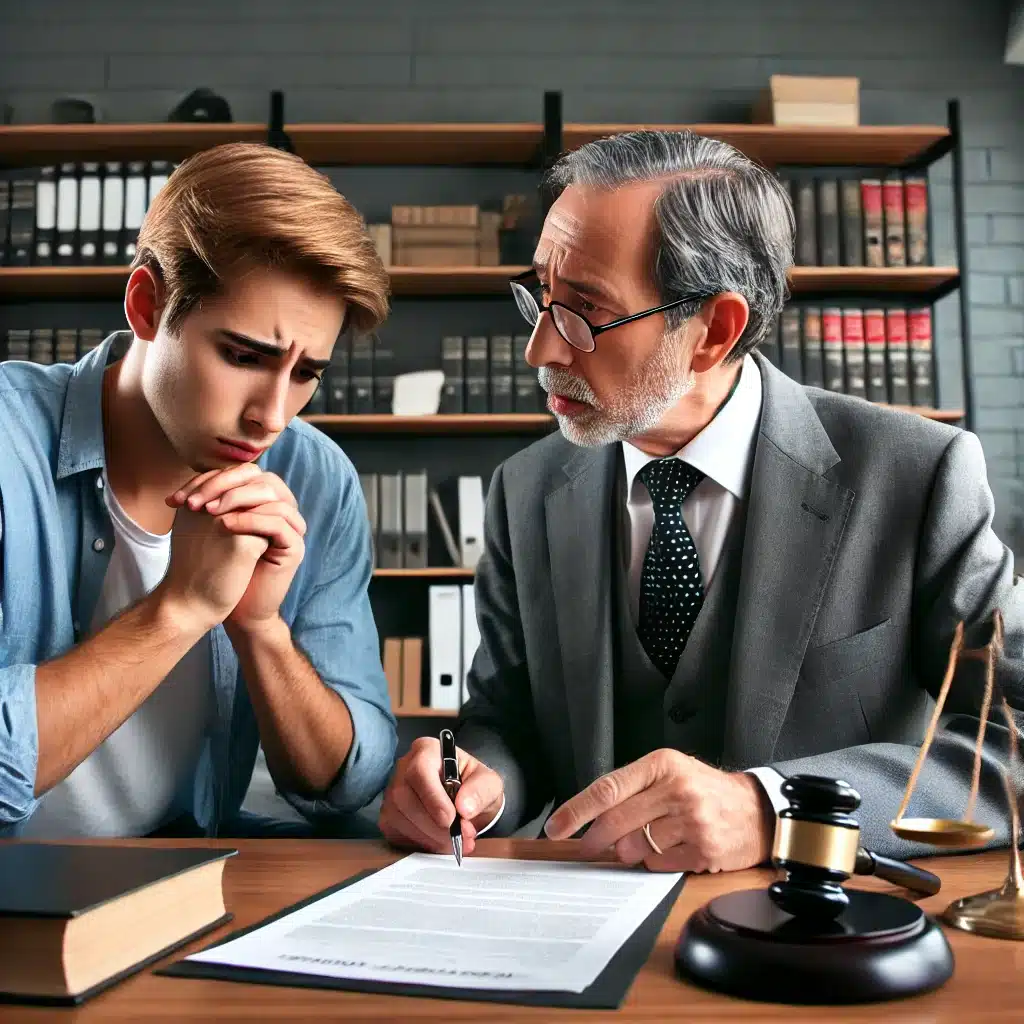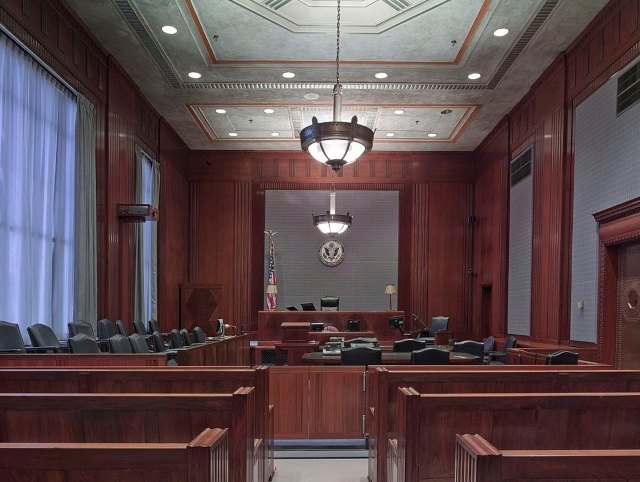Recognizing the Role of a Post-Conviction Legal Representative in Looking For Justice After a Criminal Conviction
In the complicated landscape of post-conviction legal proceedings, the role of a post-conviction lawyer is critical in navigating the path to justice after a criminal conviction. Past the boundaries of a trial, these lawyers take part in a diverse strategy focused on discovering new proof, tough legal mistakes, and supporting for their clients' rights. The intricacies of post-conviction job need a blend of lawful acumen, investigative skills, and critical believing to decipher the intricacies of a situation and seek opportunities that may have been forgotten or underexplored. As the quest of justice extends past the confines of first process, the function of a post-conviction lawyer arises as a beacon of expect those seeking to remedy injustices and redeem their rights within the legal system.
Post-Conviction Attorney's Investigative Work
Post-conviction legal representatives participate in thorough investigatory work to reveal new evidence, step-by-step errors, or misconduct that could possibly result in rescinding a conviction. This investigative phase is essential in the post-conviction procedure as it aims to recognize any forgotten information or lawful errors that may have affected the end result of the preliminary test. Post-conviction attorneys look into case data, witness testimonies, and legal documents with a fine-tooth comb, looking for any kind of inconsistencies or abnormalities that might be premises for charm.
Via complete investigation, post-conviction attorneys intend to shed light on prospective oppressions that might have occurred during the initial test. They may carry out meetings, consult with professionals, and testimonial forensic evidence to develop a compelling instance for their clients. By scrutinizing every facet of the lawful procedures, post-conviction lawyers function relentlessly to discover any kind of factors that may have influenced the judgment. Inevitably, their investigatory job plays a pivotal duty in the quest of justice and the prospective turnaround of wrongful sentences.
Crafting Appeals and Petitions
In the pursuit of justice after a conviction, proficient legal representatives diligently craft appeals and petitions to present engaging debates for the reconsideration of lawful choices. Crafting allures and applications calls for a deep understanding of the lawful system, interest to information, and calculated reasoning. Post-conviction legal representatives assess test records, determine potential errors or violations of civil liberties, and create lawful disagreements to challenge the conviction or sentence.
When crafting an allure, legal representatives concentrate on highlighting legal errors that might have influenced the result of the situation. They research instance regulation, statutes, and legal criteria to sustain their disagreements. Petitions, on the other hand, might entail providing new proof that was not readily available during the trial or showing adjustments in the regulation that require a review of the sentence.
Additionally, post-conviction attorneys must stick to stringent procedural regulations and deadlines when filing allures and petitions. They have to provide their arguments plainly and persuasively to convince the court to provide relief to their customers. Through meticulous crafting of allures and petitions, post-conviction legal representatives aim to safeguard justice for individuals that have been wrongfully founded guilty or unjustly sentenced.

Going After Post-Conviction Alleviation
Seeking alleviation after a conviction calls for a critical and attentive method by seasoned legal specialists. Post-conviction relief includes a series of legal systems created to test the validity of a sentence or sentence (top hawaii federal lawyers). These avenues consist of submitting movements for a new test, seeking charms, seeking writs of habeas corpus, and providing newly uncovered proof. Post-conviction attorneys play an essential role in browsing these complicated procedures, ensuring that all lawful alternatives are explored to fix oppressions that may have taken place throughout the trial or sentencing stage.
One common type of post-conviction relief is submitting a petition for post-conviction alleviation, usually based upon claims of inadequate support of advise, prosecutorial misconduct, freshly discovered evidence, or constitutional offenses. These requests require a thorough analysis of the test record, legal study, and persuasive advocacy to persuade the court to grant alleviation. Experienced post-conviction lawyers possess the abilities and knowledge required to recognize viable legal insurance claims, perform investigations, and present compelling debates to protect relief for their clients. By carefully seeking post-conviction alleviation, these attorneys aim to deal with miscarriages of justice and promote the principles of fairness and due process in the criminal justice system (Attorney).
Using Forensic Proof
When challenging a conviction or sentence, the tactical usage of forensic evidence can be a powerful device in post-conviction lawful procedures. Forensic evidence encompasses a wide variety of clinical strategies made use of to explore crimes and develop truths in court. Post-conviction attorneys can leverage forensic evidence to test the credibility of convictions by presenting brand-new scientific findings that were not available throughout the initial trial.

Taking Part In Sentence Alterations
Post-conviction legal representatives might discover the opportunity of sentence alterations as a lawful opportunity to address disproportionate or unjust sentences passed on in criminal instances. Sentence alterations entail looking for modifications to the terms of a defendant's sentence after a sentence has actually occurred. These adjustments can consist of minimizing the length of a sentence, altering the sort of penalty imposed, or exploring alternative sentencing alternatives.
Post-conviction legal representatives can go after sentence modifications through numerous lawful devices, such as submitting movements for sentence reduction, appealing for compassionate launch, or working out plea bargains for minimized sentences. They should thoroughly review the circumstances of the instance, examine the legal premises for seeking an alteration, and existing compelling debates to the court supporting the demand for a revised sentence.
Participating in sentence adjustments requires a thorough understanding of criminal regulation, punishing guidelines, and the details procedures associated with seeking post-conviction alleviation. Post-conviction attorneys play an essential duty in advocating for reasonable and simply results by tough sentences that are unduly extreme or do not align with the principles of justice.
Verdict
To conclude, the duty of a post-conviction lawyer is critical in looking for justice after a criminal sentence. Via investigatory work, crafting allures and petitions, going after post-conviction alleviation, utilizing forensic proof, and taking part in sentence adjustments, these lawyers play a crucial duty in advocating for their clients and making certain that their rights are maintained within the criminal justice system. Their devotion and know-how are essential in navigating the intricacies of post-conviction process and achieving a fair result for people encountering criminal sentences.
Comments on “The Importance of Habeas Corpus in Legal Defense: Lawyer's Point of view”